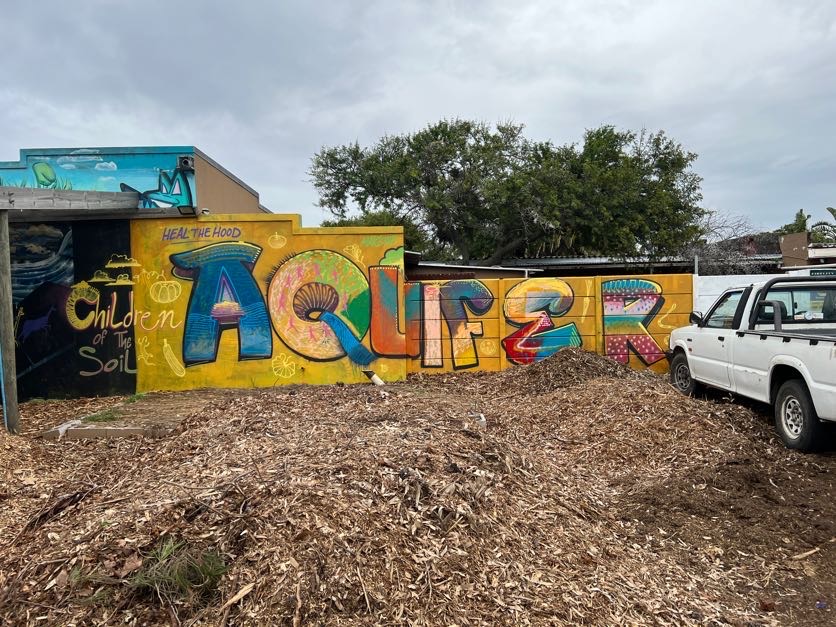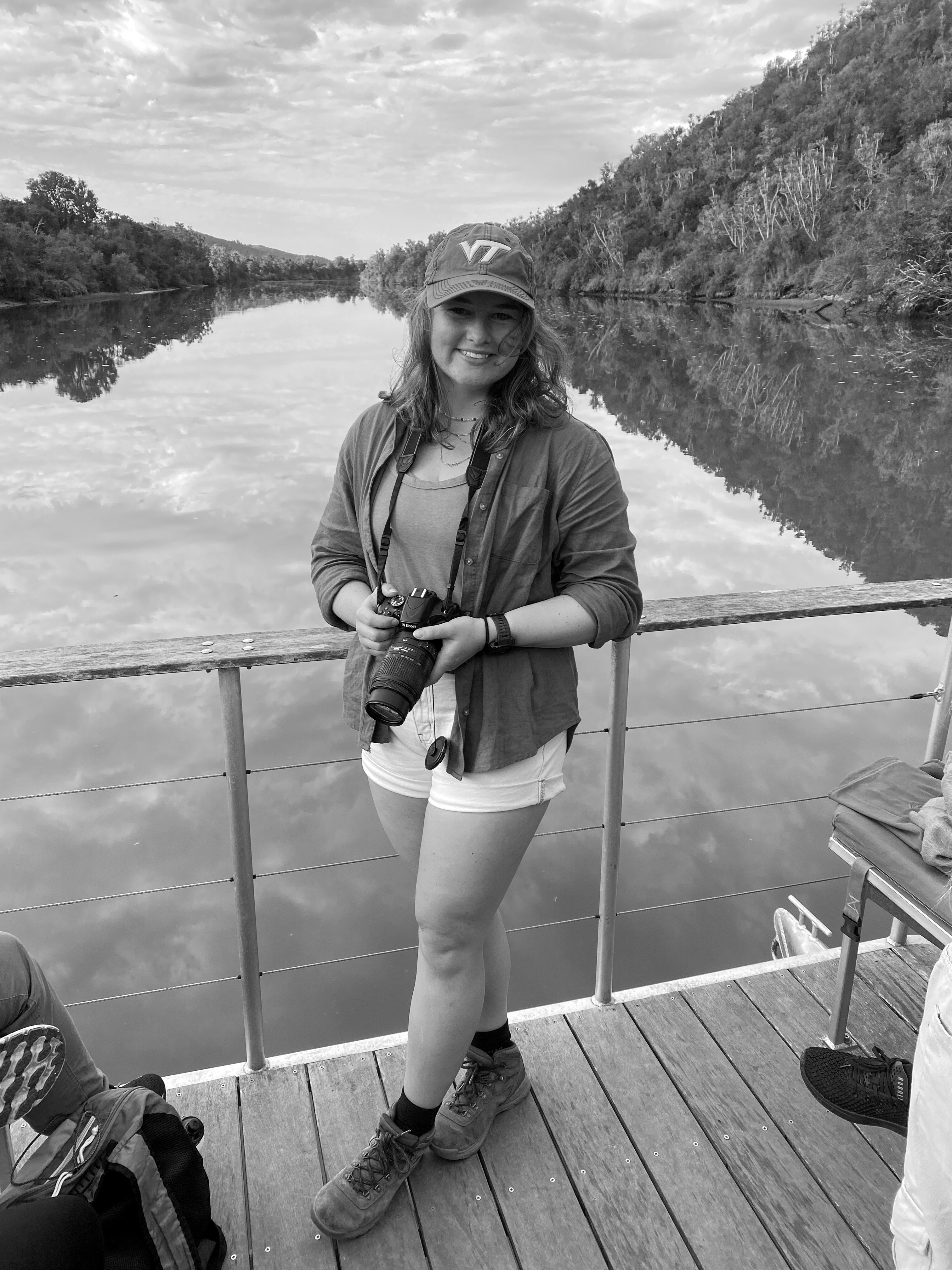African transformations—examining systematic inequality and resource management in South Africa
August 8, 2023
By Lindsay Kuczera
South Africa is a land of extremes—extreme weather, extreme wealth divide, and extreme inequality. It’s easy to see the legacy of historic apartheid in the systematic failures that disproportionately affect communities of color and low-income residents in South Africa. This disenfranchisement, and the systems that created and sustain it, were overarching themes during the South Africa Global Study trip with students from Virginia Tech’s Master of Natural Resources (Online) program.
Apartheid officially ended in 1994, but decades of racial and socioeconomic oppression and segregation enforced by violence have led to system-wide inequalities that are visible to this day. There is a major wealth divide—10% of South Africa owns 93% of the country’s wealth. And the unemployment rate is staggering—almost half the population is unemployed, with the majority of this group under 35 years old. Inequality is also apparent in the infrastructure. Water and energy access are among the top concerns, and wildlife conservation takes a front-row seat.
“South Africa presents a unique learning experience that highlights the role of culture and governance in sustainability challenges, the interconnectedness of socio-ecological systems, and our role as citizens of a global community in addressing these complex challenges,” said Neil Dampier, Assistant Professor of Practice and the faculty lead of this Global Study trip.

Water inequality
Many of us remember when South Africa became a global sustainability case study in 2018. Cape Town was in the midst of a water crisis approaching “Day Zero”—the day the city anticipated completely running out of water. This was the first time the middle class was faced with a threat of water scarcity and infrastructure breakdown, whereas lower-income communities living in townships are all too familiar with the scarcity of resources.
MNR students met with leaders of a local government program called LandCare, a public–private initiative focused on restoring sustainability to land and water management. LandCare is part of the Western Cape Department of Agriculture and specializes in waterway restoration through invasive species removal and land stewardship. As climate change-driven drought ensues, LandCare works to conserve and protect the country’s water resources for sustainable use and community access. Without laws in place restricting how much water farms, wineries, and other businesses can use, LandCare encourages sustainability by working directly with farmers and communities.
Energy inequality
South Africa is highly dependent on coal—80% of the country’s electricity is generated by coal-fired power plants. The country’s energy infrastructure is not equipped to handle its energy demand. As a result, the country is experiencing load shedding, when ESKOM, the national (and only) power utility company, switches off the power supply to customers in order to avoid larger grid-wide failure. “It’s affecting South Africans, their businesses, their safety, and their overall quality of life,” said Julianne Anderson, a student on the MNR Global Study trip.
Neil Dampier, the faculty lead, added that, “poor communities are disproportionately affected by load shedding due to their lack of energy alternatives—like solar or generators—and their precarious economic reality.”
South Africa is well-positioned for renewable energy, with ample solar and wind resources. But, according to Steward Chirova who met with MNR students, the current energy crisis will require complete city redesigns. Expanding infrastructure and bringing energy closer to townships that need it would help reduce blackouts.
Wildlife conservation
Across Africa, poachers seek out rhinos for their valuable horns. Home to nearly 70% of Africa’s rhino population, South Africa is at the epicenter of the ongoing rhino poaching crisis. The Kariega Game Reserve has been fighting this wildlife crisis with a highly trained team of anti-poaching rangers. This team uses various strategies to identify poaching threats, such as tracking dogs and aerial drones. They also take the extreme measure of removing rhinos’ horns—a non-invasive and painless process for rhinos that renders killing for their horns worthless to poachers. “It’s not so much about learning, it’s about understanding,” said a Kariega game ranger.
Poaching is a complex process involving sophisticated criminal syndicates, government officials, civil servants, and the poachers themselves. These poachers, often thought of as nothing else, have a story of their own. They are often products of this deeply oppressive society with soaring unemployment, poverty, and a history of unequal access to their native land and resources. Understanding the systematic failures that have enabled the inequality we’ve covered here is a necessary starting point. Only then can we move forward to create a sustainable, just, and equitable future.
Learn more about the Global Study opportunities with Virginia Tech’s Master of Natural Resources (Online) program.

We thank Julianne Anderson for her contribution to this article. Julianne currently works as a Trip Coordinator for Virginia Tech’s Outdoor Recreation Department. She volunteers for Blacksburg Rescue as a Technical Rescue Associate and EMT. She is half way through the MNR program and plans to graduate in December of 2023. Her highlights of the program were the Global Study trips to Argentina, with the focus on climate adaptation, and to South Africa for social connections to climate change.


